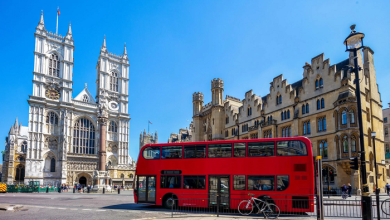8 Ways to Legally Relocate to Canada – Live in Canada
Relocating to Canada is a dream for many people across the globe. Known for its high standard of living and abundant opportunities, Canada has become one of the most sought-after destinations for immigrants.
However, moving to Canada requires careful planning and adherence to immigration laws. Here are eight legal ways to relocate to Canada.
1. Express Entry Program
Canada’s Express Entry program is among the most popular pathways for immigration. It’s designed for skilled workers and operates on a points-based system, known as the Comprehensive Ranking System (CRS). Factors such as age, education, work experience, and language skills in English or French determine the points awarded.
Steps to Apply:
- Create an Express Entry profile online.
- Submit your details regarding education, work experience, and language skills.
- If eligible, you’ll enter a pool of candidates, where you’ll be ranked against others.
- Invitations to Apply (ITAs) are sent to the highest-ranking candidates.
Successful applicants can obtain permanent residency (PR) within six months, making it one of the fastest routes to Canada.
2. Provincial Nominee Programs (PNPs)
Each province and territory in Canada has its own immigration program, referred to as a Provincial Nominee Program. PNPs cater to the specific economic needs of each province and allow them to nominate individuals who wish to settle in a particular region.
Key Features:
- Some PNPs are aligned with the Express Entry system, offering faster processing.
- Others are independent and cater to workers in specific industries or occupations.
- Popular PNPs include those in Ontario, British Columbia, Alberta, and Manitoba.
By obtaining a provincial nomination, you significantly increase your chances of getting an ITA under the Express Entry system or directly receiving a PR.
3. Family Sponsorship
Canada’s immigration policy strongly supports family reunification. Citizens and permanent residents of Canada can support their family members in immigrating to the country.
Who Can Be Sponsored:
- Spouse, common-law partner, or conjugal partner.
- Dependent children.
- Parents and grandparents (through the Parent and Grandparent Program, or PGP).
Sponsors must meet specific income requirements and agree to financially support the sponsored individual for a certain period.
4. Study Permit and Post-Graduation Work Permit (PGWP)
For those interested in higher education, studying in Canada is an excellent pathway to permanent residency.
READ – 12 Jobs for Foreigners in Canada Without a Degree
Benefits of Studying in Canada:
- High-quality education from world-renowned institutions.
- Opportunities to work part-time during studies.
- Eligibility for a Post-Graduation Work Permit (PGWP) upon completing your program.
The PGWP permits graduates to work in Canada for a duration of up to three years, based on the length of their study program. Work experience gained through the PGWP can help you qualify for permanent residency under programs like the Canadian Experience Class (CEC).
5. Temporary Work Permit
If you have a valid job offer from a Canadian employer, you can apply for a Temporary Work Permit. This pathway allows you to live and work in Canada for a specific period, and in some cases, it can lead to permanent residency.
Types of Work Permits:
- Employer-specific work permits: Tied to a single employer.
- Open work permits: Not job-specific and allow you to work for any employer in Canada.
Programs like the Global Talent Stream (GTS) expedite the processing of work permits for high-demand occupations.
6. Start-Up Visa Program
Canada encourages innovation and entrepreneurship through the Start-Up Visa Program. This pathway is designed for entrepreneurs who have the skills and potential to build innovative businesses in Canada.
Eligibility Requirements:
- Obtain a commitment from an approved Canadian venture capital fund, angel investor group, or business incubator.
- Meet the minimum language proficiency requirements.
- Demonstrate sufficient settlement funds.
Successful applicants can obtain permanent residency and contribute to Canada’s economy by creating jobs and fostering innovation.
7. Self-Employed Persons Program
The Self-Employed Persons Program is tailored for individuals who have relevant experience in cultural activities, athletics, or farming and intend to make a significant contribution to Canada’s cultural or athletic life.
Key Requirements:
- Demonstrate relevant experience (at least two years) in cultural or athletic fields.
- Show intent and ability to be self-employed in Canada.
- Meet selection criteria, including age, education, experience, and language proficiency.
This program is ideal for artists, performers, athletes, and other self-employed professionals.
8. Refugee or Humanitarian Programs
Canada has a long-standing tradition of providing refuge to individuals fleeing persecution, war, or violence. Refugee or humanitarian programs offer protection and resettlement opportunities to those in need.
Types of Refugee Programs:
- Government-Assisted Refugee (GAR) Program: Funded by the Canadian government.
- Private Sponsorship of Refugees (PSR) Program: Supported by private sponsors.
- Blended Visa Office-Referred (BVOR) Program: A hybrid of government and private sponsorship.
While this pathway is not for everyone, it’s a vital part of Canada’s commitment to global humanitarian efforts.
Tips for a Successful Immigration Journey
- Conduct Thorough Research: Understand the eligibility criteria and application process for your chosen pathway. Canada’s official immigration website is a reliable resource.
- Improve Your CRS Score: If applying through Express Entry, enhance your profile by improving your language test scores, gaining more work experience, or obtaining a job offer.
- Seek Professional Advice: Consider consulting a licensed immigration consultant or lawyer for guidance.
- Prepare Accurate Documentation: Ensure that all required documents are complete and error-free to avoid delays or rejections.
- Stay Updated on Immigration Policies: Canadian immigration programs and policies can change. Regularly check for updates to ensure your application aligns with current requirements.
Relocating to Canada legally is a well-structured process with multiple pathways to suit various needs and aspirations. Whether you’re a skilled worker, a student, an entrepreneur, or someone seeking family reunification, Canada offers opportunities to build a new life. By choosing the pathway that aligns with your goals and diligently following the application process, you can make your Canadian dream a reality.


